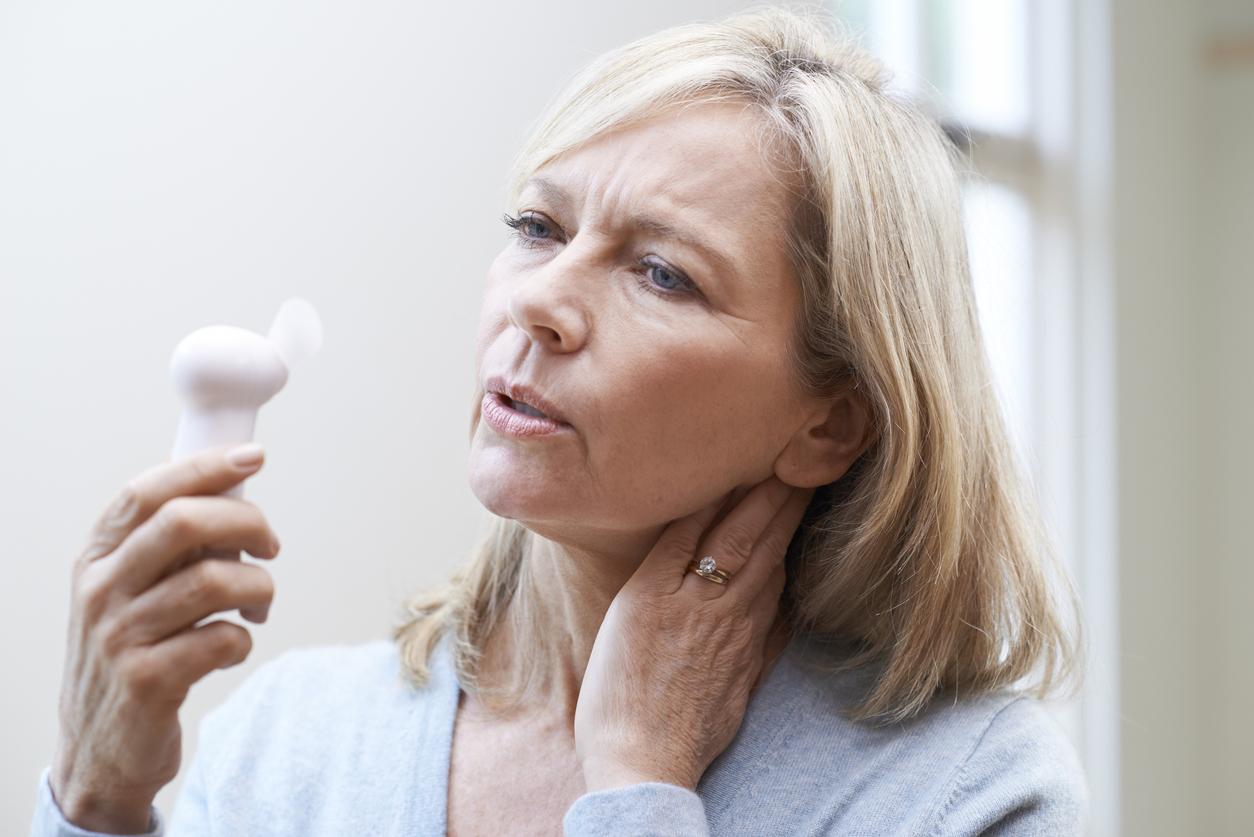The more frequently a woman has intercourse, the later menopause comes, her body preferring to invest in ovulation, according to a new American study.

This should delight very sexually active women. According to a study published this Wednesday, January 15 in the journal Royal Society Open Science, the more frequently a woman makes love, the more it would delay her menopause. This could be explained because when a woman has few reports, her body prefers not to invest in ovulation.
Here, to go further, researchers examined data from nearly 3,000 American women, recruited between 1996 and 1997. At that time, none of the participants had yet entered menopause, but 46% of them began to experience changes in menstrual cycles and hot flashes.
For a decade, women had to answer many questions about the frequency and nature of their sexual encounters. During this period, 45% of women experienced natural menopause (absence of menstruation for at least 12 consecutive months), at an average age of 52 years.
No influence of pheromones
By modeling the relationship between the frequency of sexual intercourse and the age of menopause natural, researchers found that women of any age who had sex weekly had a hazard ratio of 0.72, while those who had sex monthly had a hazard ratio of 0.81. Thus, women of any age who have sex every week are 28% less likely to experience menopause than those who have sex once a month. The latter are 19% less likely to be menopausal at any age than those who have sex less than once a month.
“The results of our study suggest that if a woman does not have sex, and there is no chance of pregnancy, then the body ‘chooses’ not to invest in ovulation, because it would be useless. There may be an energetic biological trade-off between investing energy in ovulation and investing in other areas, such as staying active caring for grandchildren. The idea that women cease to be fertile in order to invest more time in their families is known as the Grandmother Hypothesis, which predicts that menopause originally evolved in humans to reduce reproductive conflict between different generations of women, and enable women to increase their inclusive fitness by investing in their grandchildren,” explains PhD student Megan Arnot (UCL Anthropology), lead author of the study.
Although all of the women surveyed reported heterosexual relationships, it is unclear whether same-sex activity would have a similar effect. Moreover, contrary to what previous studies suggested, no link was observed between the presence of men in residence and the subliminal chemical signals that the latter could send. “We found no evidence for the pheromone hypothesis,” the authors note.
“The timing of menopause can be adaptive”
And Professor Ruth Mace (UCL Anthropology) concludes: “Menopause is, of course, a fatality for women, and there is no behavioral intervention that will prevent the cessation of reproduction. Nevertheless, these results are an early indication that the timing of menopause may be adaptive in response to the likelihood of becoming pregnant.”
This study reinforces the idea that genetic factors account for only about half of menopausal age differences for women. Other factors, such as diet for example, also come into play.
Thus, according to a study published in May 2018 in the Journal of Epidemiology & Community Health, a diet rich in oily fish (3.3 years late per serving/day) and fresh legumes (0.9 years late per serving/day) would delay the onset of menopause, as would a diet rich in vitamin B6 (0.6 years late per mg/day) and zinc (0.3 years late per mg/day). Conversely, a higher consumption of pasta and rice would be associated with earlier natural menopause (-1.5 years per serving/day), as would that of salty snacks (-1.0 years per serving/day ).
.

















